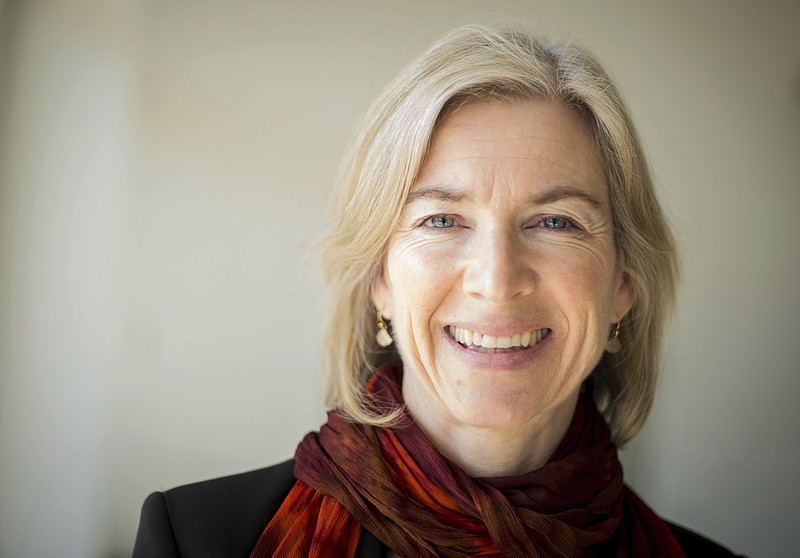STOCKHOLM -- The Nobel Prize in chemistry went to two researchers Wednesday for a gene-editing tool that has revolutionized science by providing a way to alter DNA, the code of life -- technology already being used to try to cure a host of diseases and raise better crops and livestock.
Emmanuelle Charpentier of France and Jennifer A. Doudna of the United States won for developing CRISPR-cas9, a very simple technique for cutting a gene at a specific spot, allowing scientists to operate on flaws that are the root cause of many diseases.
"There is enormous power in this genetic tool," said Claes Gustafsson, chair of the Nobel Committee for Chemistry.
More than 100 clinical trials are underway to study using CRISPR to treat inherited diseases, and "many are very promising," according to Victor Dzau, president of the National Academy of Medicine.
"My greatest hope is that it's used for good, to uncover new mysteries in biology and to benefit humankind," said Doudna, who is affiliated with the University of California, Berkeley, and is paid by the Howard Hughes Medical Institute, which also supports the Health and Science Department at The Associated Press.
The prize-winning work has opened the door to some ethical issues: When editing is done after birth, the alterations are confined to that person. Scientists fear CRISPR will be misused to make "designer babies" by altering eggs, embryos or sperm -- changes that can be passed on to future generations.
[Video not showing up above? Click here to view » https://www.youtube.com/watch?v=m5yZqUJzTkk]
Much of the world became aware of CRISPR in 2018, when Chinese scientist He Jiankui revealed he had helped make the world's first gene-edited babies to try to engineer resistance to infection by the AIDS virus. His work was denounced as unsafe human experimentation, and he has been sentenced to prison in China.
In September, an international panel of experts issued a report saying it is too soon to try such experiments because the science isn't advanced enough to ensure safety.
"Being able to selectively edit genes means that you are playing God in a way," said American Chemistry Society President Luis Echegoyen, a chemistry professor at the University of Texas El Paso.
Dr. George Daley, dean of Harvard Medical School, said: "New technology often presents this dichotomy -- there is immense potential for human benefit, especially for disease treatment, but also the risk of misapplication."
However, scientists universally praised the great potential that gene editing has for patients now.
"There's no aspect of biomedical research that hasn't been touched by CRISPR," which has been used to engineer better crops and to try to cure human diseases including sickle cell, HIV infection and inherited forms of blindness, said Dr. Kiran Musunuru, a genetics expert at the University of Pennsylvania who is researching it for heart disease.
Doudna said CRISPR also has the potential to be used to engineer plants to store more carbon or to withstand extremes of climate change, giving researchers a chance to "address urgent problems humanity is facing."
It's the fourth time in the 119-year history of the prizes that a Nobel in the sciences was given exclusively to women.
Three times a woman has won a Nobel in the sciences by herself; this is the first time an all-female team won a science prize. In 1911, Marie Curie was the sole recipient of the chemistry award, as was Dorothy Crowfoot Hodgkin in 1964. In 1983, Barbara McClintock won the Nobel in medicine.
The Nobel comes with a gold medal and more than $1.1 million, courtesy of a bequest left more than a century ago by the prize's creator, Alfred Nobel, the inventor of dynamite.
On Monday, the Nobel in medicine was awarded for the discovery of the liver-ravaging hepatitis C virus. Tuesday's prize in physics honored breakthroughs in understanding black holes. The prizes in literature, peace and economics will be awarded in the coming days.
Information for this article was contributed by Frank Jordans and Seth Borenstein of The Associated Press.









